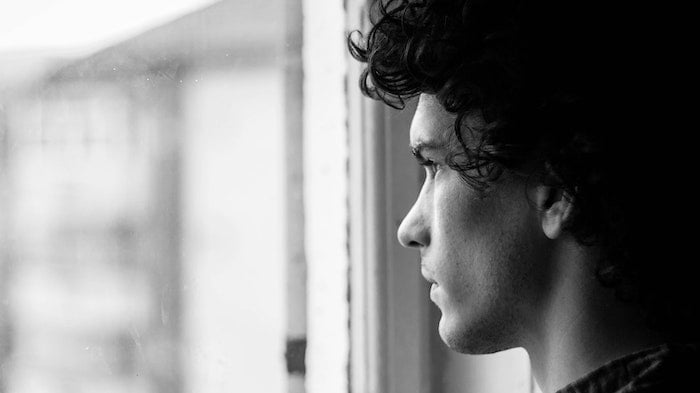We understand that dealing with a drug or alcohol addiction and seeking treatment for such can be time-wasting, confusing, and utterly stressful.
Luckily, it doesn’t have to be this way.
With OK Rehab, the complicated processes and endless options are simplified, and the long waiting lists for addiction treatment are almost non-existent. We work hard to find you the perfect treatment facility as soon as possible and then support you as you self-refer, detox, receive your treatment and participate in therapy – and we even continue to support you after you leave your chosen rehab.
To hear more about what we can do for you, get in touch today via 0800 326 5559.
A few of our most frequently asked questions are answered briefly below, but if you don’t find the information you are looking for here, do not hesitate to ask a member of our team when you call.
What is a drug and alcohol detox?

A drug and alcohol detox simply works to rid your body of the toxins left behind from substances, by these substances gradually being reduced and then eventually completely removed. A detox acts as the first step in addiction treatment.
Essentially it is an intervention for the body’s physical dependence on the substance or multiple substances that have been abused. Though the mind will inevitably still want to consume these substances, a detox helps the physical body slowly start to heal from their impact.
A detox stabilises an individual, ensuring that they are ready to begin other forms of treatment for their addiction.
As substances are slowly reduced throughout the detox phase, the brain and body have to begin to adjust to the sudden drop in the chemicals that drugs and alcohol release when used. This can lead to the individual detoxing to experience withdrawal.
Symptoms of withdrawal can include nausea, headaches, fatigue, mood swings, muscle pain and dizziness. All these side effects are completely normal and are expected when your body is experiencing detoxification.
If necessary, certain medications can be prescribed to help ease these symptoms.
Do I need to detox?

Yes, if you have not undergone one prior to your admission into treatment, you will have to undergo a full detox at your chosen drug and alcohol rehab in Feltham.
Though this is a daunting step in the process of recovery and one that is most commonly feared by clients and those thinking of beginning treatment, it is the most necessary and important step.
A drug and alcohol detox allows your body to start healing from the damage and impact of substances, and it is the crucial first step that must be taken before any other treatment can begin.
What treatment will I receive?

The treatment you receive will be decided by a few simple assessments of you and your addiction that will occur during the enquiry and admissions process.
The information we gain from these assessments (details about your addiction such as the length of time you have used, what substances you have used, and the method of abuse, if there is any family history of addiction that you know of and an evaluation of your mental and physical health) will help us determine what your personal needs and requirements for treatment are.
This will in turn allow us to begin to create your bespoke treatment plan that will guide you throughout your time in rehabilitation.
Because of this tailored aspect to our treatment here at OK Rehab, we cannot at this time detail exactly which treatments you will encounter as every addiction, client and of course treatment plan is different.
However, some of the most common forms of treatment that you can expect to maybe participate in include:
- Individual therapy
- Group therapy
- Art therapy
- Motivation Enhancement Therapy (MET)
- Acceptance and Commitment Therapy (ACT)
- Contingency management
- Addiction counselling
- Cognitive Behavioural Therapy (CBT)
- and Dialectical Behavioural Therapy (DBT).
How much does rehabilitation cost?

Every year, many individuals battling a drug or alcohol addiction will avoid seeking professional treatment such as rehabilitation due to the expected high costs compared to at-home alternatives.
We understand why this is, but DIY/at-home recovery attempts are risky and can be highly dangerous if handled improperly or alone, which is why we always recommend residential rehab programmes. We protest that these programmes are well worth the price, as they offer much higher chances of a full, well-rounded and long-lasting recovery than that of outpatient care or at-home treatment attempts.
However, we get that it is not easy for some to cover this higher cost, but we do believe that no one should miss out on crucial treatment, so we work hard to ensure that everyone receives some form of treatment, no matter their circumstances.
If you have any financial concerns that you wish to discuss when enquiring, please do not hesitate to mention them to a member of our friendly admissions team. We promise we will strive to work around any fluctuating finances or budgets you may have.
How long will I be in rehab?

As mentioned previously, every treatment plan, every addiction, and every client is extremely different, so time spent in rehab is expectedly varied.
The average amount of time spent on a residential rehab programme in a drug and alcohol rehab in Feltham is around 28 days, but this of course is not representative of every client. Some may need much less time in rehab due to less severe addictions or addictions to lower-class drugs, whilst some clients will inevitably need longer in rehabilitation, for a possible multitude of reasons.
There is no shame if you are someone who requires longer than the average, and your recovery is still very much possible. Similarly, if you are someone who is able to leave before the 28-day average is reached, it is not an excuse to be lax when it comes to aftercare.
Instead of focusing on the fictional ‘finish line’ of rehab, we suggest concentrating on the progress you are sure to make along the way and the improvement you will have made since the beginning of your recovery journey.
How can I get in contact with OK Rehab?
Our 24/7, free-to-call helpline number is 0800 326 5559. Alternatively, you can email us, or fill out our online form with your details and some information about your enquiry to receive a callback.





